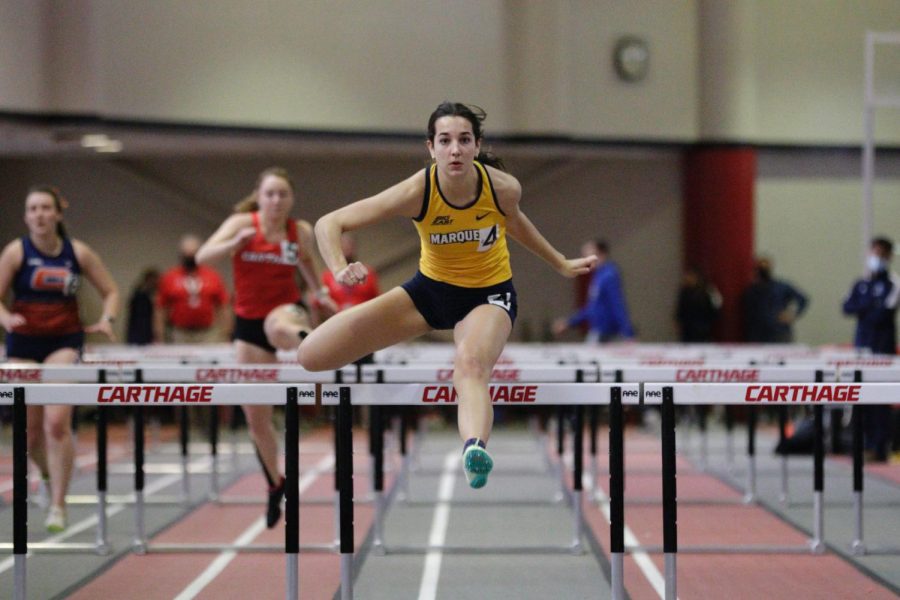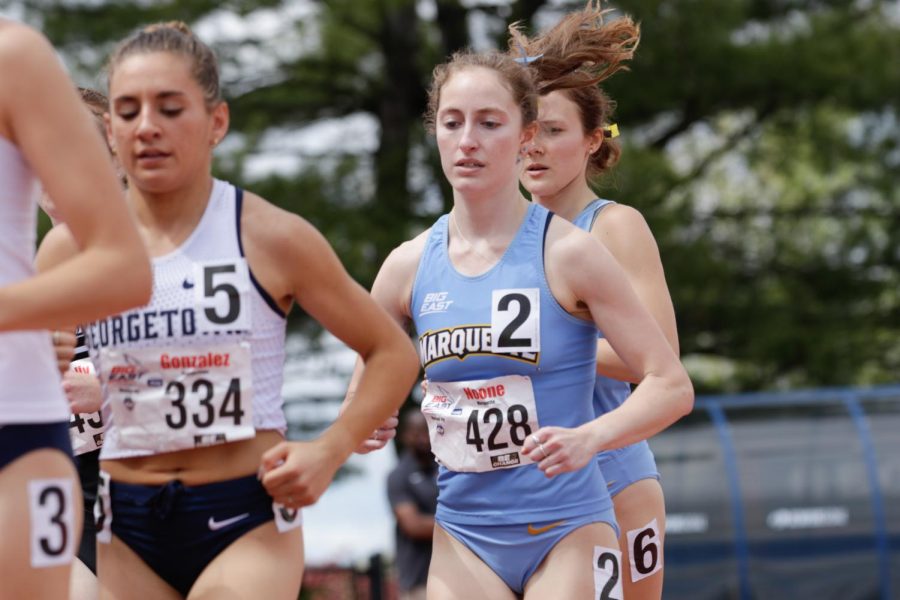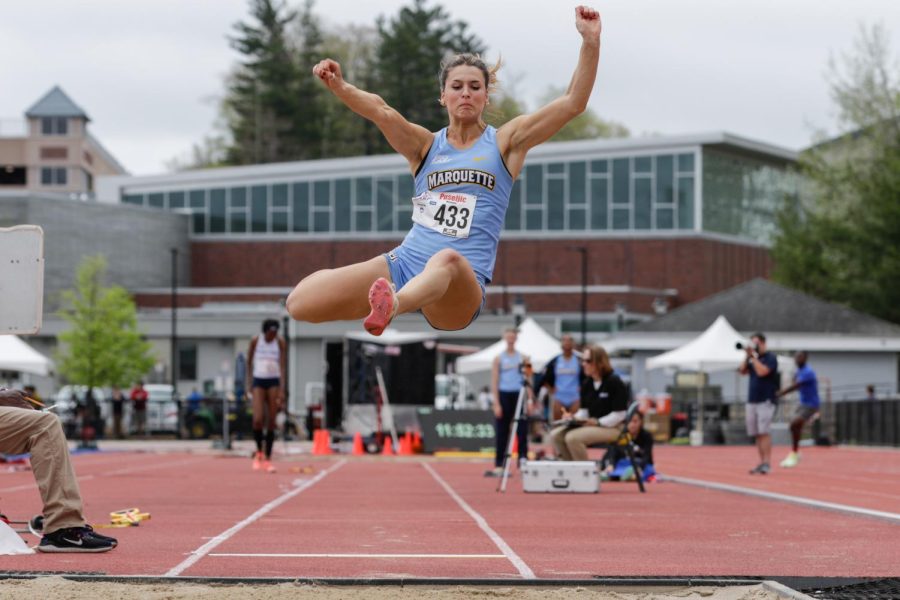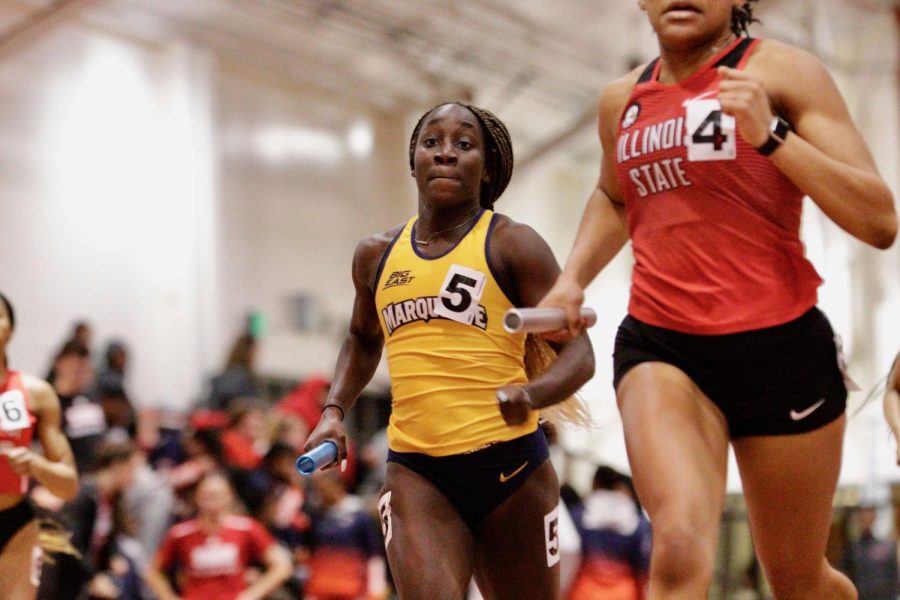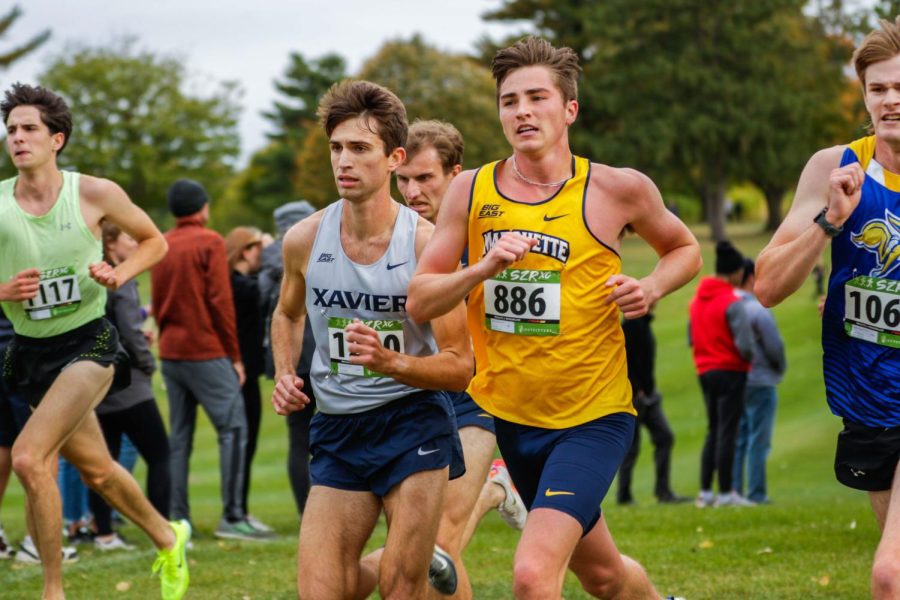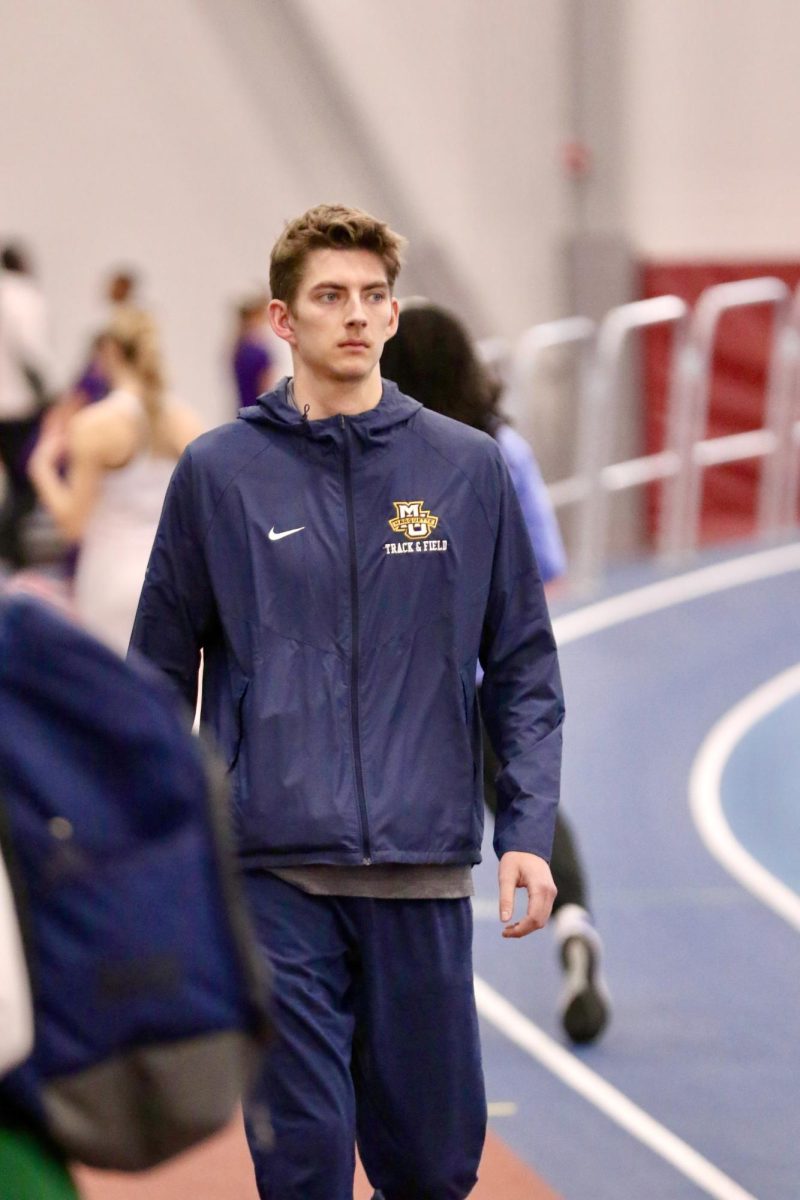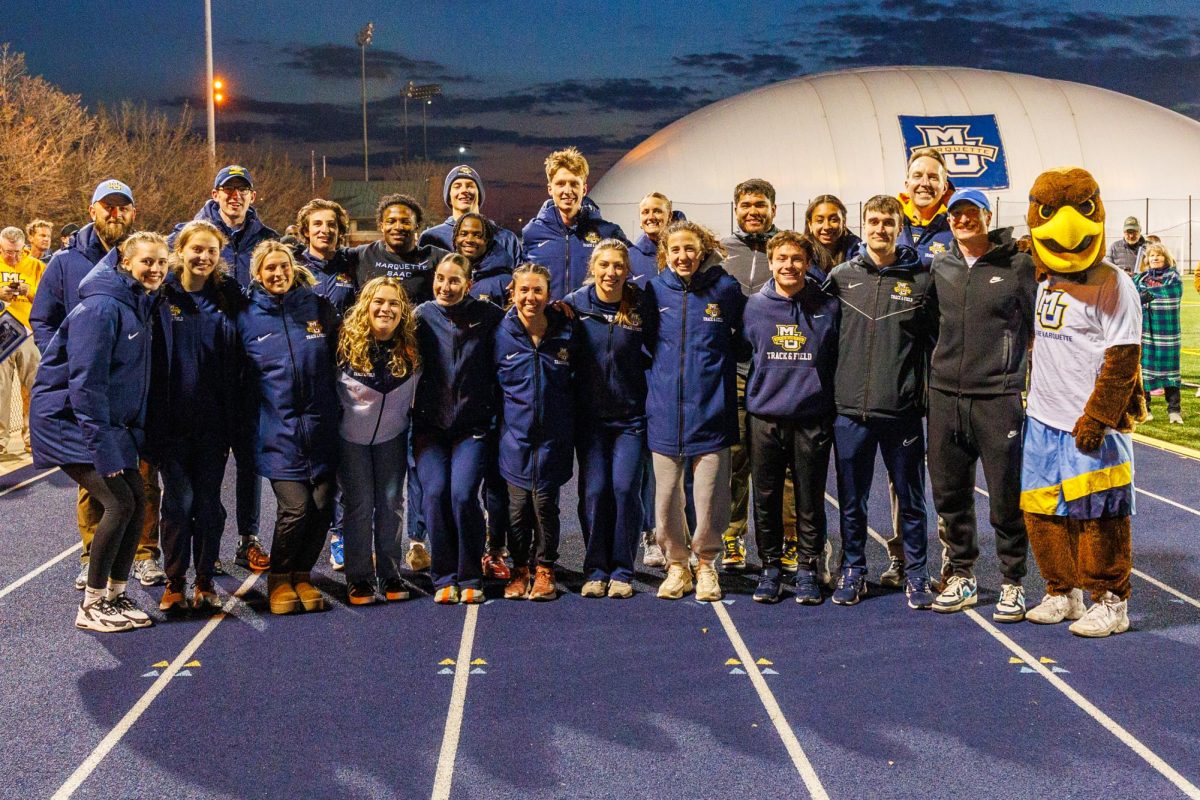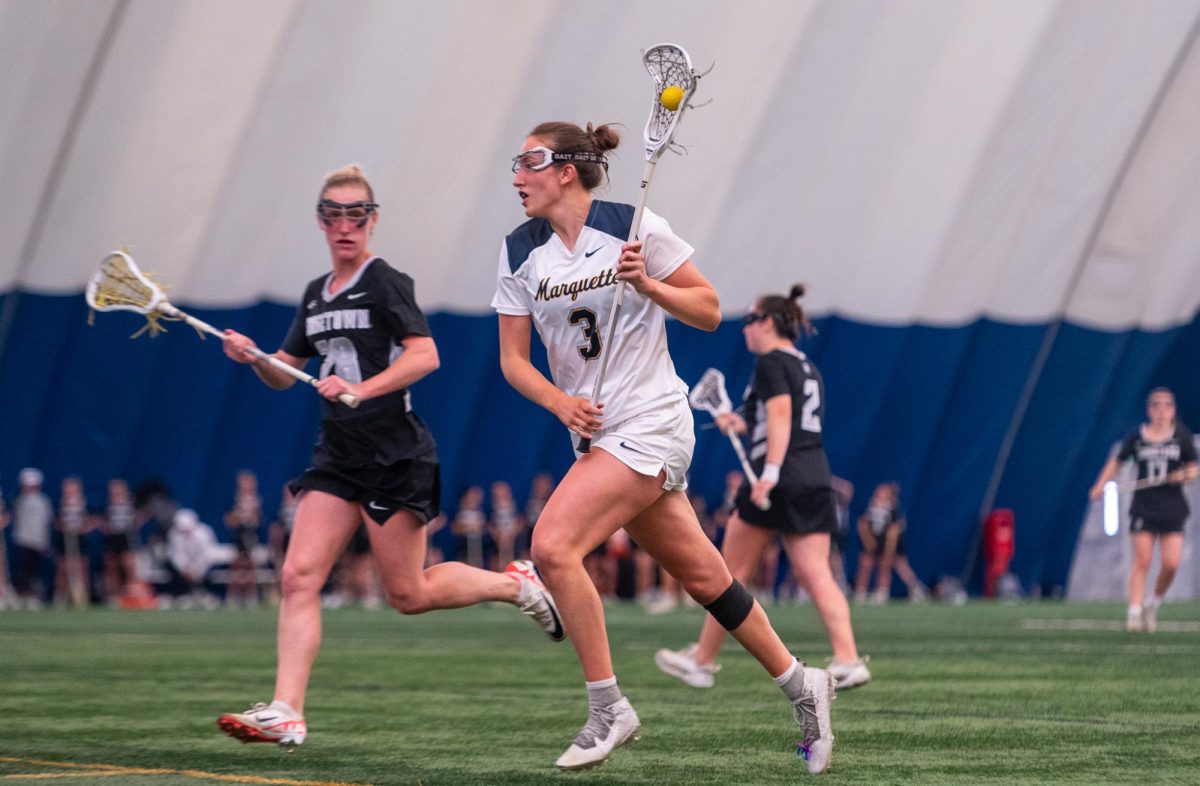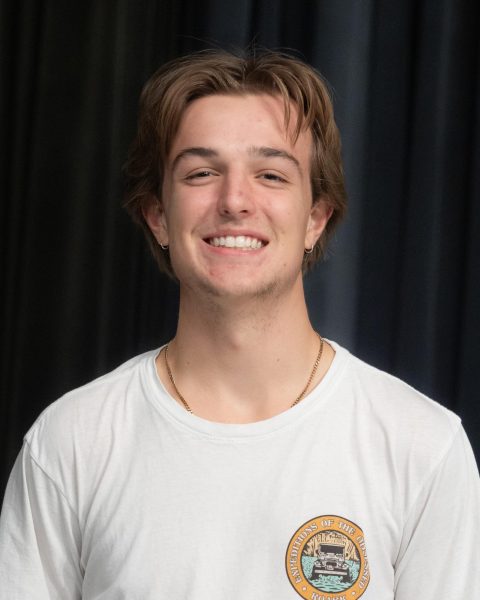Track and Field has many different personalities based on the event an athlete competes in, and the Marquette team is no exception.
Senior sprinter Payton Hanselman said each member of the team is able to find a way to make the team come together as one to make each season memorable.
“With every event group comes different personalities, Hanselman said. “Everyone goes about training differently. We all come from different backgrounds which is huge. Somehow, we all make it mesh and work in a really cool and unique way. I feel like every year is a very unique type of team.”
Head coach Bert Rogers said this diversity can create success while still focusing on every different event area.
“We’ve won several Big East championships over the last few years. We support all of the event areas (whereas at) some different schools, they may just focus on certain events or whatever, but we try to have a full team,” Rogers said. “We’ve been pretty successful, and we’ve been successful over all of the event areas.”
With this success, senior multi-event athlete Katie Dingle said that the team is close-knit because of their collective, arduous work.
“People see how it’s one of the bigger teams on campus, but with all the overlap and being in meets all together, it does really feel like one huge team. Even though we have events that are scored separately, it all comes together in one score,” Dingle said. “So, it really is a team sport even though it seems really individual.”
Hanselman stressed that with running, being individually focused puts a lot of pressure on an athlete, which can make an event more difficult. She also said that when that happens, having the team there for you makes it easier.
“No matter what, it is this invigorating feeling of ‘holy crap.’ Everybody is watching you and everybody is cheering for you,” Hanselman said. “They’re in your face because it’s a really difficult event, but it makes it suck way less when everybody around you is cheering you on. You know that no matter how good or bad it goes, your team is behind you. No matter what.”
Dingle said a way the team helps remove that pressure is by keeping the team spirit alive even after an individual’s personal events conclude.
“Everyone stays and cheers each other on until the very last event: the 4-by-4,” Dingle said. “It can be super late, but it’s nice getting your events done, putting the hard work in, then cheering on your teammates kind of in that space together. There’s always something going on.”
Whether a distance runner or a high jumper, each Marquette athlete contributes to the same goal of putting the team first.
“As an individual and as part of a team, they all want to do the best they can for themselves because then that helps the team,” Rogers said. “So, all of them would have their own goals. We, as the coaching staff, work with the athletes individually and meet them where they’re at to work on those goals from there.”
Rogers said the collective dynamic of the team, pushes each athlete to do their best. Hanselman shared this observation and has personal experience with the situation.
“I really need to motivate myself and it’s definitely not only a self-discipline,” Hanselman said. “When I’m most unmotivated, I switch the idea in my mind and say, ‘My team is working hard, other people in the conference are working hard, I need to go work hard.’ That’s how I would say I get over that mental hump.”
While Hanselman works hard, so are other people in the conference, but it doesn’t create any kind of heated competition.
“Track and field is one of those sports where the comradery between all schools is huge because everyone has this mutual respect for each other. There’s not a ton of huge rivalries,” Hanselman said. “I think we’re all cheering each other on because we know that track and field is kind of the underdog of the NCAA.”
Even though track and field is such a big and diverse group, Rogers recognizes that each athlete keeps a team-first mentality. He said that they care about how they contribute to the whole, which makes each one very respectable.
“They’re overall just good people. I don’t worry about my team and what they’re doing. They’re not out getting into trouble,” Rogers said. “They’re doing what they’re supposed to be doing. They take care of their business, and that’s something I really appreciate about the team that I coach.”
This story was written by Benjamin Hanson. He can be reached at benjamin.hanson@marquette.edu or on Twitter @benhansonMU.


